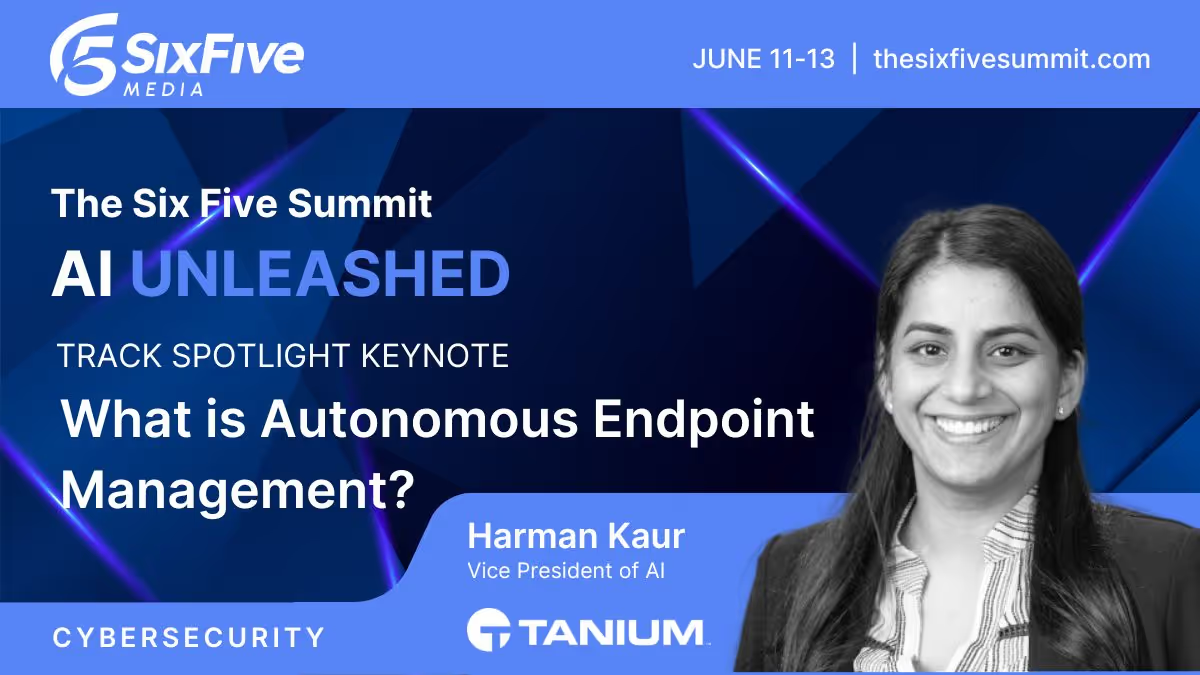How Open Banking Tools are Democratizing and Transforming the Financial Industry
Jorge Carrera, Product Owner at Banco de Crédito BCP, joins Daniel Newman and Greg Lotko to share insights on the growth of open banking and democratic tools like Yape, and the impact these shifts are having on accessibility and small business empowerment in Peru.
How are emerging financial tools and open banking models transforming banking accessibility and opportunities for small businesses?
On this episode of the The Main Scoop, hosts Daniel Newman and Greg Lotko are joined by Banco de Crédito BCP's Jorge Carrera, Product Owner, Legacy Infrastructure Squad, for a conversation on how major shifts in the banking industry, including open banking, the rise of e-commerce, and emerging financial tools like Yape, seek to “democratize banking” by making financial services more accessible and empowering small businesses.
Key Takeaways Include:
🔹The Democratization of Banking: A deep dive into the surge of open banking and tools like Yape, exploring why these models are crucial for empowering more people and increasing accessibility within modern financial systems.
🔹Economic Impact on Small Business: Gain specific insights into how open banking fosters economic participation and growth, with a focus on its wide adoption in Peru and its direct benefits for small enterprises.
🔹The Technology Behind Trust: Uncover the critical role of the foundational technologies, including mainframe and advanced observability, that are essential for building reliable, secure, and available financial platforms that meet evolving customer expectations.
🔹The New User-Centric Mandate: Users now demand unprecedented availability, ease-of-use, and ironclad security from financial services.
Watch the full video at sixfivemedia.com, and be sure to subscribe to our YouTube channel, so you never miss an episode.
Or listen to the audio here:
Disclaimer: The Main Scoop is for information and entertainment purposes only. Over the course of this webcast, we may talk about companies that are publicly traded, and we may even reference that fact and their equity share price, but please do not take anything that we say as a recommendation about what you should do with your investment dollars. We are not investment advisors, and we ask that you do not treat us as such.
Greg Lotko: Hey, folks, welcome to the next episode of The Main Scoop. I'm Greg Lotko. I'm with my co-host here, Daniel Newman.
Daniel Newman: How's it going?
Greg Lotko: Awesome. Delighted to be here with you again.
Daniel Newman: Yeah. You're not getting a high foot this time.
Greg Lotko: Oh, well, I guess I'll deal. Okay. I'll do it myself. So we've got an interesting topic like we always do on these Today we're going to be talking about the banking industry which has gone through a great evolution. Right. I mean if you think about how it started with people keeping money or gold or whatever under their mattress to hey, banks and financial institutions come along and they're a place to kind of keep your money safe. But they really didn't give you a return at first to wow, we'll hold your money and we'll maybe give you more back if you let us lend it out to others. To the advent of compute technology coming in and E-Commerce. And now there's this kind of next evolution of talking about the democratization of access to these financial services.
Daniel Newman: Yeah, we've got a pretty significant transformation going on, Greg. You have crypto and stablecoins and you have a lot of regulate, deregulate in terms of how banks work. We've got a lot of these sort of fintech platforms now that have sort of revolutionized the way millennials and Gen Zs are starting to think about it. So we had, of course, the traditional banks, big, large footprints, oftentimes had large retail presences. That was kind of one way that banking was done. And then you had this kind of all digital experience. And then you had, you know, cash and Fiat and now you have whole generation coming up on this idea of crypto. And now we're trying to figure out currency.
Greg Lotko: Oh, I was gonna say, I prefer Porsches.
Daniel Newman: Yeah, no, Corvettes. Yeah, yeah. This show, we had to go there. But it is a. It is kind of really going through this interesting inflection right now of how payments are made, how money is transferred, how investments are made. We've seen democratization of investments with things like Robinhood that have, you know, here in the US have changed. Everybody's an investor now. You've seen things like Coinbase, everybody's in crypto now. You've seen things like Square and Stripe that have made payments accessible. But behind all this is still there's a huge industry that is the financial industry and banking industry. And these companies are also doing a lot of innovating, a lot of disrupting, a lot of changing what they do in order to come to where some of these Neo companies are and also to take advantage of all that great infrastructure and by the way, all that regulatory support that they already have in place that the others don't.
Greg Lotko: It's access to new technologies and new financial institutions, but it's also access to a new set of the population to have access to these things. So let's bring some of these things together and I'm going to slip another car thing in here because our next guest, I think his middle name might be Porsche, but he is an expert in the banking space. So welcome. We're going to bring in Jorge Carrera. Get the reference there. Porsche Carrera. And you're a leader at BCP and I know you've done a lot to influence and get involved with the democratization of banking for the broader population of Peru. Could you introduce yourself to the audience and kind of start us down the path of what you think about that technology.
Daniel Newman: Before he does, though, you're a chef.
Greg Lotko: Okay, so don't even let him introduce himself.
Daniel Newman: No, I just wanted to hear about that. Before he goes too far into the democracy.
Greg Lotko: How about we introduce and then you get into the chef and then we'll democratize.
Jorge Carrera: Hi, sir. I'm very glad to be here with you. Jorge Carrera. I'm a technical leader of mainframe infrastructure at BCP, the biggest bank of Peru, which has more than 30% of the market share. Financial share. Yes. And also the group is bigger. Bigger. As a chef, you told me. And a mainframer also. I mix.
Greg Lotko: He was just as excited about being a chef as a mainframer. So tell us about the chef part.
Jorge Carrera: Yes.
Greg Lotko: Is that a recent thing you got into or you've been a chef your whole life?
Jorge Carrera: I have loved cooking since I was a child. Look at my mother cooking all the delicious dishes she used to prepare. Yes. She left me a written hand book with all her recipes and started trying to cook all those recipes. And now I can do everything. No more her place, also all the Peruvian places and other countries.
Greg Lotko: So have you added and expanded the repertoire? Like when you hand down to the next generation, are there more recipes?
Jorge Carrera: I would like to give that kind of inheritance to my daughter. I have one daughter and other people from my country.
Greg Lotko: Awesome.
Daniel Newman: All right, so now that we're well fed, let's talk a little bit about sort of how you're thinking. I mean, 50%. Very impressive that you have that much of the market, but in a market.
Greg Lotko: I think it was 30%.
Daniel Newman: Did you say 30?
Jorge Carrera: 30% of the whole bank. Three zero.
Greg Lotko: Very impressive, very impressive.
Daniel Newman: And in Peru, just curious, what percentage of the population is banked? Do you know?
Jorge Carrera: It's a very interesting point. People before the pandemic were very poor. Bank people didn’t use to use financial products offered by the banks. So after the pandemic, BCP enforced a position in the market. Not only the 30% I just told you with applications like Yape. Yape is our super app called Yape. You know why? Yape is Peruvian slang for “ya pues” or “come on, come on” and pay me.
Greg Lotko: But this is used across financial institution. This is an open platform, correct?
Jorge Carrera: Yes. Really. And Yape users has more than 50% of our population. I mean 70 million people. Our population is close to 31, 32. And Yaperos are for everyone, almost everyone. Not only people who work, people like students, people like the street vendor could manage their financial transactions.
Greg Lotko: But in order to use that platform, the actual money, the currency behind it can't be in your mattress or your dresser drawer. It's got to be held somewhere. Right. So it's an open platform, but it has access to all these different financial institutions.
Jorge Carrera: Yes, but if people don't want to have an account, they can manage with that account only with his ID, with their ID and phone number and make a transaction with them.
Daniel Newman: So it sounds like this trend, right? Sounds a little bit. You mentioned the pandemic. It sounds like there's been some different drivers. But this open banking, you're seeing more collaboration, you're seeing sort of these super apps in the development here. What do you sort of see as the driving forces that you kind of mentioned a little bit about everybody being able to use a tool, manage financial transactions. But are you seeing adoption scale and then of course adoption with banks? Because of course your point is a lot of these apps are not really banks, they're not really regulated. But they do a lot of things that make people feel like over blockchain or payments. What are you seeing that's creating all this demand for BCP?
Jorge Carrera: The first thing is the customer expectations. They need to make transactions. The second one is technology. Technology has to support all that kind of expectation. And finally regulations. We need to have a group of game rules in order to make it more orderly in the correct way according to the laws.
Greg Lotko: I imagine on that first point you said needing to interact that way. I imagine there's some newer businesses or even some that have been around for a while that have said, okay, I'm no longer going to accept cash. I only want you to interact with me through Yape. Is that, is that kind of what you're talking about? I mean, the reality is just we're filming in a hotel context. I was surprised. I went to dinner last night and I was told, hey, the hotel is cashless. I actually tried to pay my bill with cash. I know, old school. And, and they were like, no, it's cashless. You gotta give me a credit card. So you see that happening in Peru where they're saying, no, use this open platform or you can't conduct business with me.
Jorge Carrera: The other way. You can give a tip to a waiter with Yape. You can pay the man who is washing your car on the street with Yape also, or buy ice cream for your daughter or for your boy. And with Yape also, it's all kinds of transactions.
Daniel Newman: We've gone to digital. But then sometimes systems go down. Sometimes transaction platforms don't work. Because my kids all the time, I don't know about you, but like, they never have money. They never have money. They might have a credit card. They have their phones. But like, even if they, like, need to go to a gas station, like, well, there's no tap to pay here. Well, what do you mean you didn't bring the card? I don't have a card. I just kind of wanted to, before we jump to the economy because I think it's probably created growth, it's created a lot more consumer activity for sure. But on the technological part, where I was kind of trying to go at is like when you set this up, we've come so reliant on Yape or you know, payments through, you know, any sort of rails on any digital payment experience. We've basically 100% democratized our data, which is interesting, and two, we're 100% reliant on the text. I guess this is why the mainframe must be so important. Right? Because other technology is not quite as reliable.
Jorge Carrera: Yes. Quickly manage. We need a platform, a strong platform, a valuable platform like mainframe that should be always available because people demand their products and transactions every day.
Greg Lotko: I mean, when you want that ice cream, you gotta be able to get it.
Jorge Carrera: Not in two years.
Greg Lotko: You're not gonna wait.
Daniel Newman: Well, but it is interesting nonetheless that this is an absolute prototype of a case of why the mainframe has remained so where that technology scalable, secure, cause all the things that you need in a transaction. So even when you're using something that's a kind of a cool modern, it could be a cash app, it could be, you know, transacting and taking dollars out of your Robinhood account, moving it to your bank or the other way around to make investments. That stuff has to kind of happen on a mainframe because most of the other technologies like our clouds go down. I mean, it doesn't matter if it's been AWS, it's Microsoft like anybody that's run a website or they've had some time, their hosting, their services have gone down. This really can’t go down.
Greg Lotko: The reality is, you know, you're driving cross country and your tank is empty and you need to get gas and you don't have any cash, that transaction better go through or you're just going to be standing there at the pump.
Daniel Newman: Yeah, you're not getting where you're going.
Greg Lotko: You need it to always be on.
Daniel Newman: So what about though Jorge, like in Peru? This is very interesting to me. Like, you know, one of the things is how has this open banking and democratization of banking impacted the economy? I know the economy in Peru is very different from here in the United States. Imagine you want to grow it, you want to create more wealth, you want people to, you know, have access to more services. Is it making a difference? Are you seeing that?
Jorge Carrera: It has a huge positive impact on our economy because a small business can compete, be competitive as well as the big ones. So it's a kind of democratization. Also, I told you, the guy who is offering services or products in the street also can make all the transactions without money. So all people are making more transactions, more money from them, and more earnings. And our currency is becoming stronger. That's much more, sir. In the region, countries, people from other countries are saving in our currency in soles more than dollars.
Daniel Newman: Interesting.
Greg Lotko: So I'm curious about that. So if I travel to Peru and I've got. I haven't, I've been there. I've been to South America.
Daniel Newman: All the cars, when I left the airport, I gotta tell you a story. Like the cars drive so close together.
Jorge Carrera: Yes.
Daniel Newman: I left the airport and I swear I could have reached into the car. Like there was probably what we would consider two lanes of traffic and there were six cars wide and they were this like literally I would reach in and like could knucks with the driver next to me.
Greg Lotko: Were the cars as wide?
Daniel Newman: They're littler. Mostly smaller cars. They don't have big trucks and SUVs.
Jorge Carrera: The gas is expensive.
Daniel Newman: But I left the airport and it was like I was like this because I was nervous.
Greg Lotko: So maybe I should be asking you my question then. So if, when you went to Peru, could you use your Amex, your MasterCard, your debit card with Yape?
Daniel Newman: I don't know Yape. I used my credit cards there and then I took some of the cash.
Greg Lotko: Let's ask the expert then. So if I go there and there's a merchant on the street and they say I only have Yape and I have my credit card, would I be able to interact or do I have to download a new app or something?
Jorge Carrera: You can pay with every kind of.
Greg Lotko: And they can process my credit card and through the back end it'll go.
Jorge Carrera: In the same POS you can pay with your mastercard. Also I want to pay with Yape and they make your QR to pay. Easy.
Greg Lotko: That does feel very open and democratized because I can travel and interact just like a Peruvian. Cool.
Daniel Newman: So we talked a little bit about the mainframe and that's important. I think everyone here agrees. Show sort of survivability depends on that. But what are some of the other technologies that you see that are super critical to this continued democratization, open adoption?
Jorge Carrera: Of course for making apps like Yape available for people. We need also cloud. All infrastructure to connect cloud
Greg Lotko: to the edge connectivity.
Jorge Carrera: Yes, yes. And also we need to have observability of all the roads of the transaction from point to point.
Greg Lotko: Right. Mobile. Mobile mainframe.
Jorge Carrera: Not only mainframe.
Greg Lotko: Right. But mobile all the way through the cloud through maybe a distributed server in the mainframe and back out.
Jorge Carrera: Yes sir.
Greg Lotko: Single observability across everything.
Jorge Carrera: We need that.
Greg Lotko: Yes.
Jorge Carrera: And fortunately we have that kind of observability in order to know what is happening in each moment in real time and know what is happening also about if an issue is happening, act very quickly in order to fix it.
Greg Lotko: Yeah.
Daniel Newman: So to take this home, you know, we've talked a lot about the tech democratization. Sounds like the economy is seeing some growth because of what you're doing at BCP and the industry as a whole. But this is going to transform the industry. Right? Everything from tools that help people make better decisions. Right. AI can do better than probably the average banker in helping someone understand the best investment or find the best rate or to decide which credit card. I mean this has actually been done a long time with machine learning. But like how do you see this industry changing in the next several years? I mean, everything seems to be happening so fast, Jorge, what are some of the things you see ahead.
Jorge Carrera: With Yape, we have also a roadmap with EA supporting all our processes, but not only ours–with other processes. So we are converting our open banking to open finance and then open economy supported by our platform with technology with EA and other stuff as we are talking about.
Greg Lotko: So I'm curious, you know, oftentimes people question openness, democratization. They believe that it could diminish differentiation. I know for our own business, opening up our tools and our capabilities and the APIs to it, it has been part of helping our business grow. I'm curious, you say you have 30% of the market now. Do you feel like Yape and opening up has helped BCP grow the business?
Jorge Carrera: Yes, of course.
Greg Lotko: Yeah.
Jorge Carrera: Not only grow our own business, grow all the country.
Greg Lotko: And then you differentiate as well. Yes, very cool.
Daniel Newman: I think that's what we're seeing happen across tech is almost in all cases, open does end up being the enabler. Even though there's sometimes these closed architectures that come out first, maybe they work a little better because all the contributions haven't been put into place. But then over time, you see, and I think AI is going to follow the same path. You've got the frontiers and you've got the open sources. And of course you see the economics tend to work a lot better with open as well. They do. So that ends up creating scale. Jorge, it was a really interesting conversation. I want to thank you so much for joining us here today.
Jorge Carrera: Thank you.
Daniel Newman: Sharing a little bit about what you're doing at BCP. And I want to thank you everybody for being part of this episode of The Main Scoop. It was a great conversation today. We saw open technologies, open platforms in the future of democratization of technology in the banking industry is going to continue to propel economic growth and of course we reiterated that the mainframe sits underneath a lot…most..
Greg Lotko: It underpins it.
Daniel Newman: All of these transactions that we all do every day and by the way when you to want want that card to work or you want that bump to pay to work or you want anything basically but cash to work underneath it sits that mainframe technology but stay with us become a subscriber we appreciate you being part of our community see you all later.
Greg Lotko: Pleasure having you.
Daniel Newman: Bye bye.
MORE VIDEOS
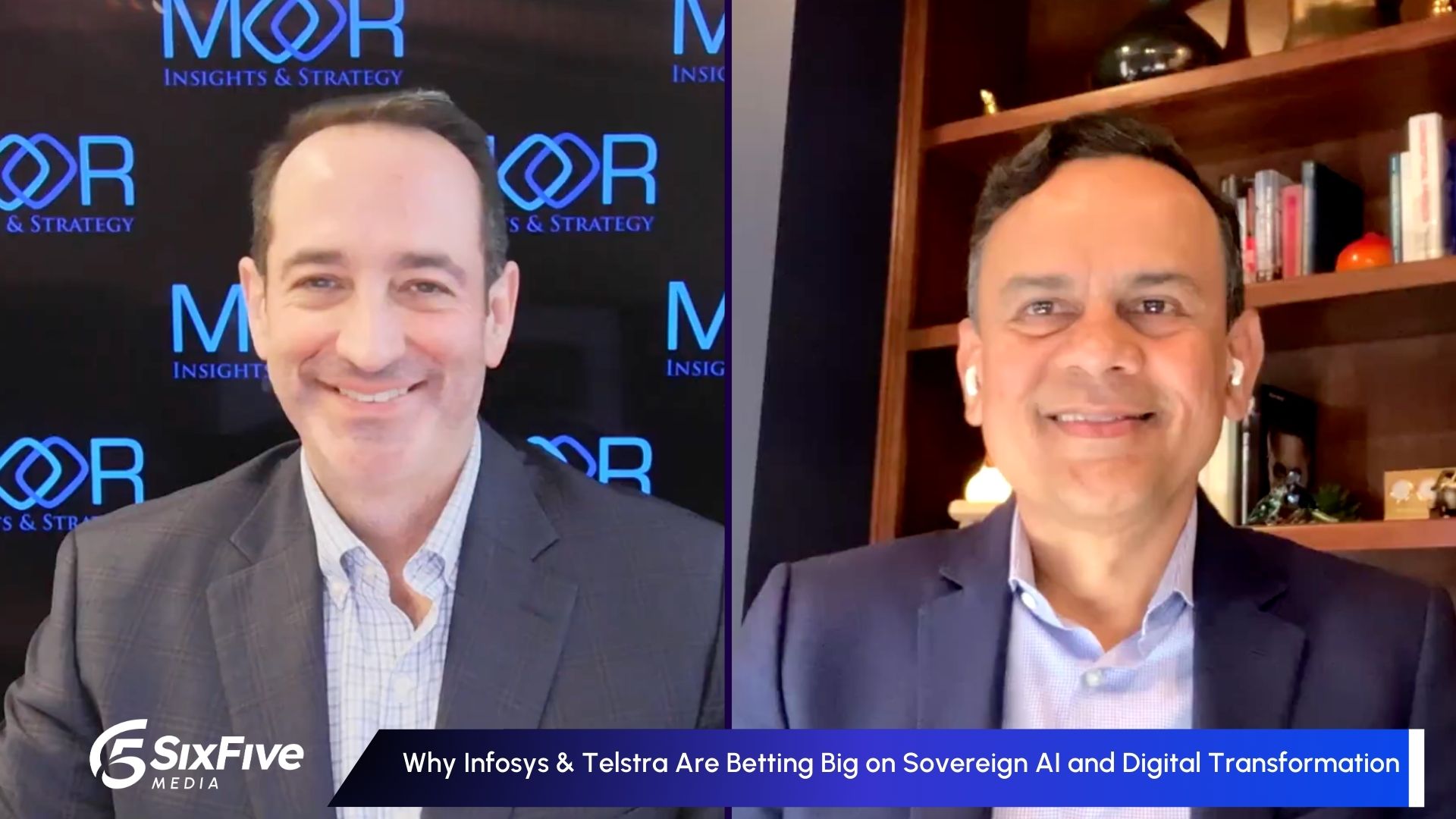
Why Infosys & Telstra Are Betting Big on Sovereign Al and Digital Transformation – Six Five Media
Anand Swaminathan, EVP at Infosys, joins host Patrick Moorhead to reveal how the company's new venture with Telstra and Versent is reshaping AI-driven cloud and digital transformation in Australia, setting a template for sovereign cloud innovation.
.jpg)
The Six Five Pod | EP 273: Silicon Strategies: Government Stakes, AI Chips, and Market Volatility
On this episode of The Six Five Pod, hosts Patrick Moorhead and Daniel Newman discuss Intel's potential government stake, China's reliance on Nvidia, and the impact of Fed interest rate decisions on the economy. The hosts debate the future of SaaS companies like Workday and Zoom, while also touching on cybersecurity firm Palo Alto Networks' performance. The conversation wraps up with anticipation for Nvidia's upcoming earnings report and its market dominance in AI chips. Throughout, the hosts blend industry insights with playful banter, offering listeners a mix of expert analysis and entertaining commentary on the fast-paced world of technology.
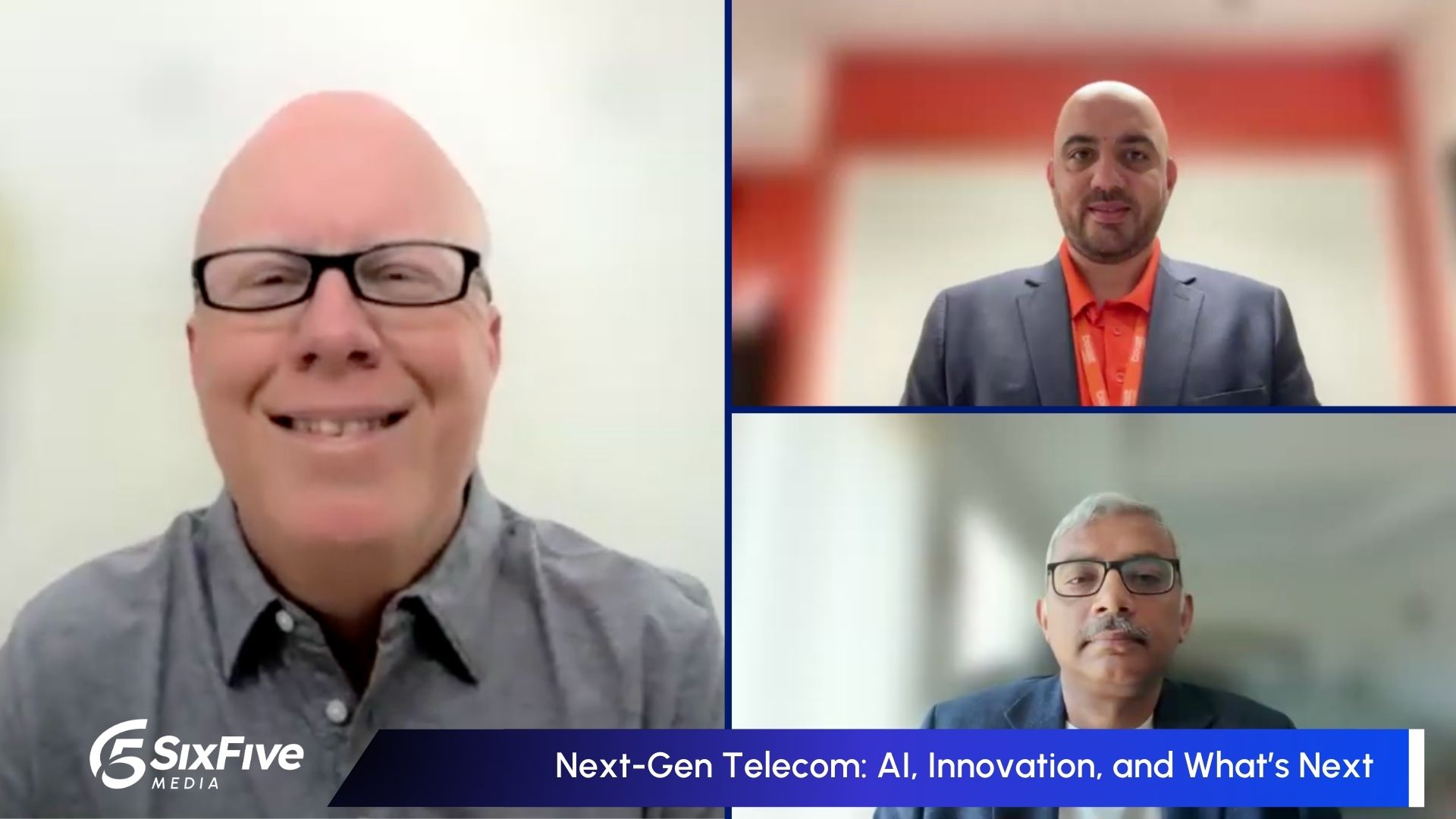
Beyond 5G: AI, Innovation, and What’s Next for Telecom
Dawood Shahdad, VP at Boost Mobile, and Dr. Srinivas Bhattiprolu, Head of Advanced Consulting Services at Nokia, join host Will Townsend to discuss how AI and innovation are reshaping telecom—from new revenue streams to trust and transparency in automation.
Other Categories
CYBERSECURITY
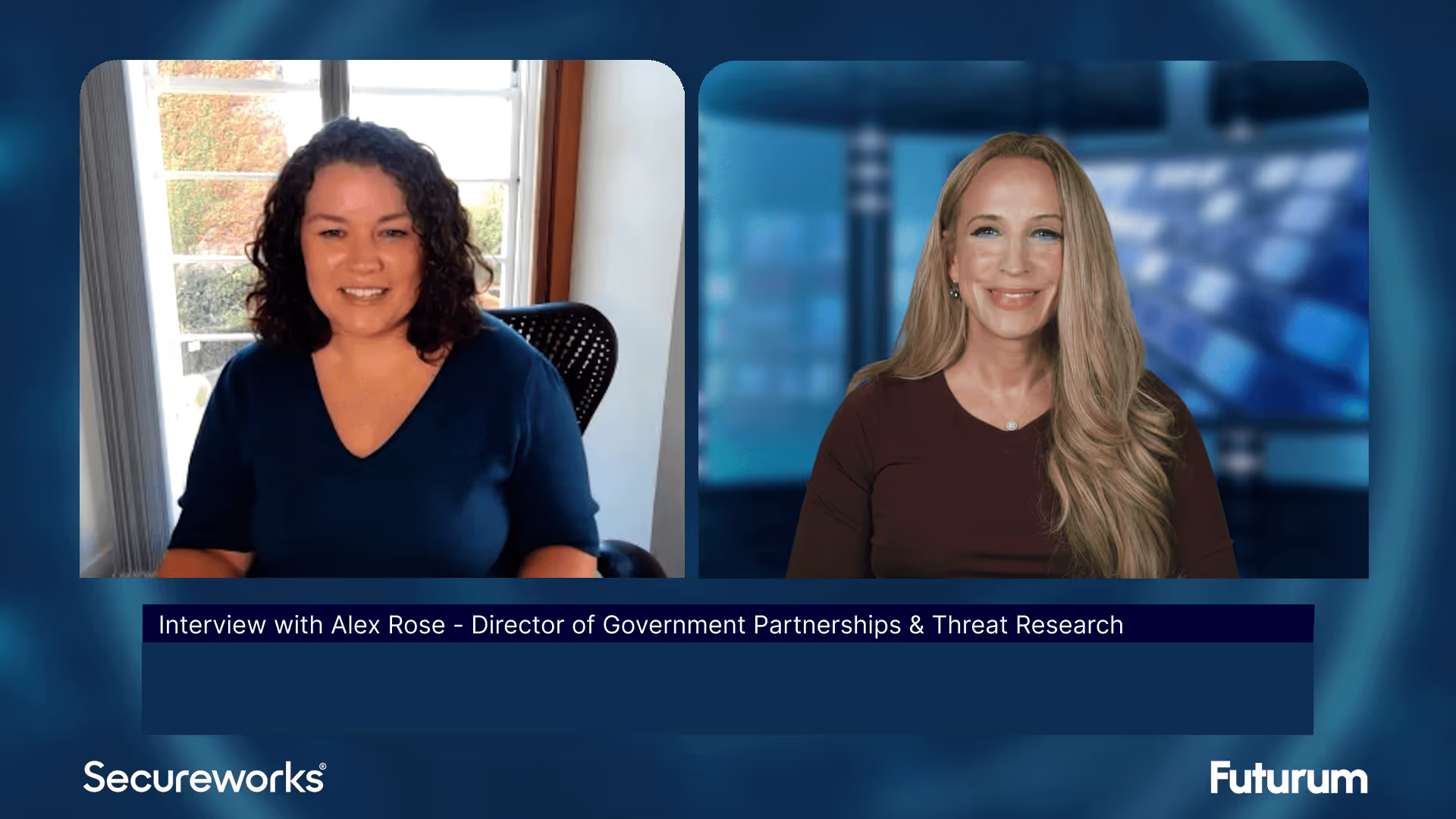
Threat Intelligence: Insights on Cybersecurity from Secureworks
Alex Rose from Secureworks joins Shira Rubinoff on the Cybersphere to share his insights on the critical role of threat intelligence in modern cybersecurity efforts, underscoring the importance of proactive, intelligence-driven defense mechanisms.
QUANTUM
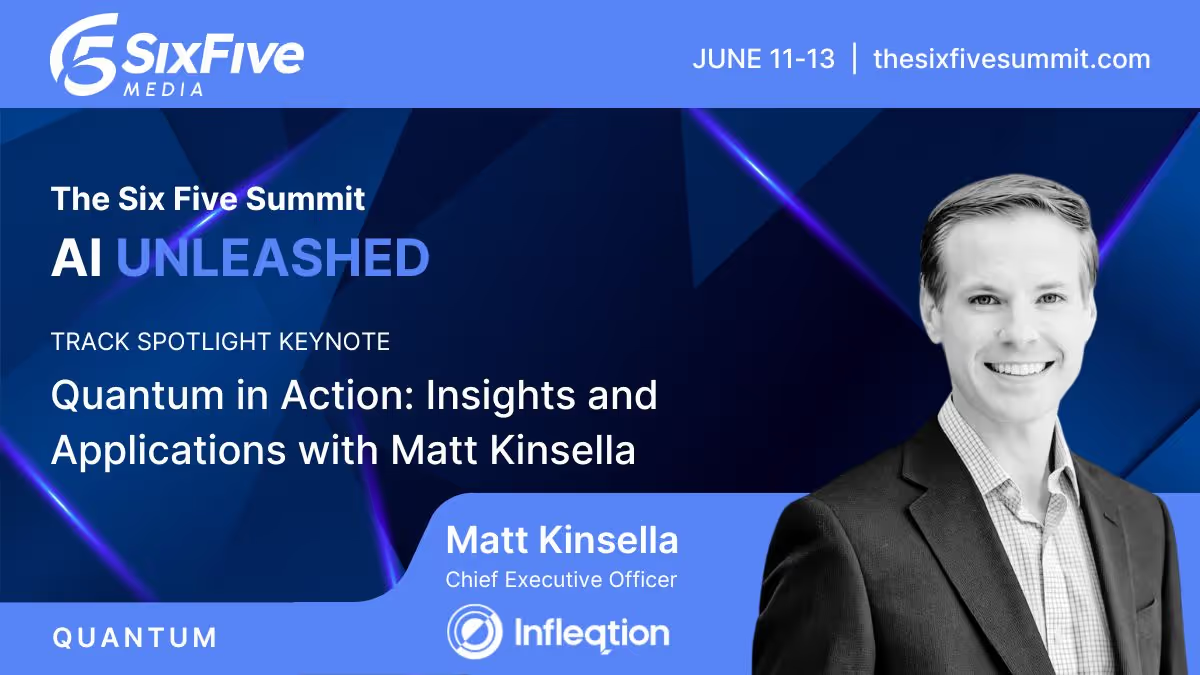
Quantum in Action: Insights and Applications with Matt Kinsella
Quantum is no longer a technology of the future; the quantum opportunity is here now. During this keynote conversation, Infleqtion CEO, Matt Kinsella will explore the latest quantum developments and how organizations can best leverage quantum to their advantage.
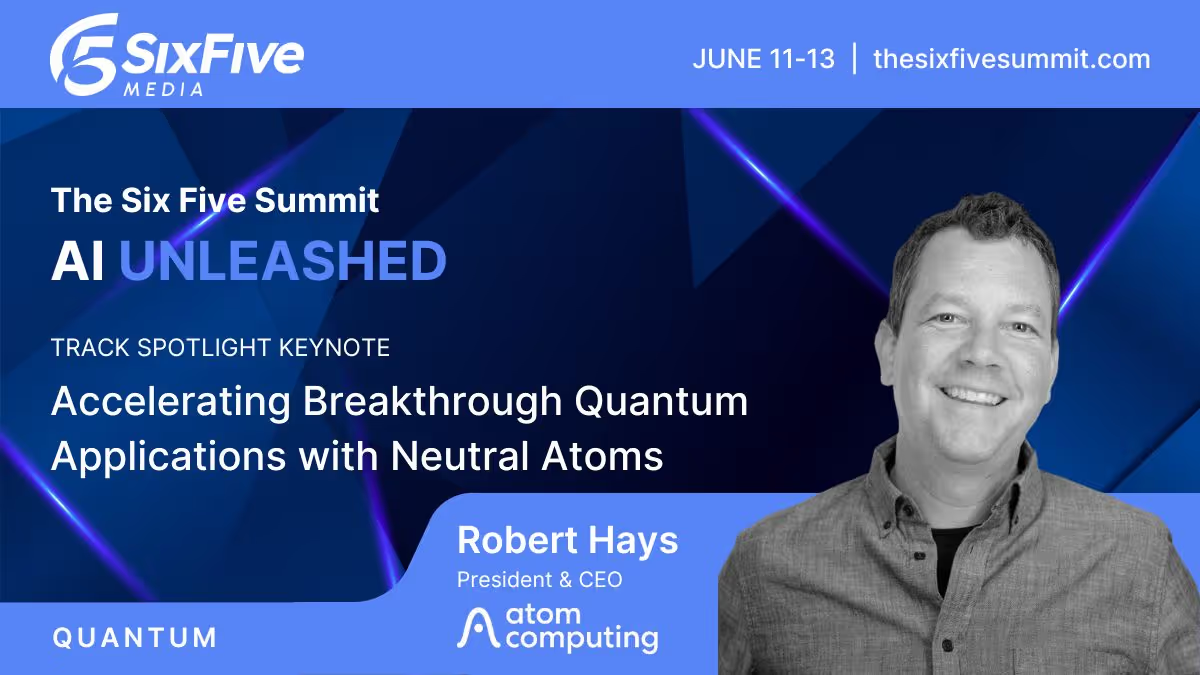
Accelerating Breakthrough Quantum Applications with Neutral Atoms
Our planet needs major breakthroughs for a more sustainable future and quantum computing promises to provide a path to new solutions in a variety of industry segments. This talk will explore what it takes for quantum computers to be able to solve these significant computational challenges, and will show that the timeline to addressing valuable applications may be sooner than previously thought.




